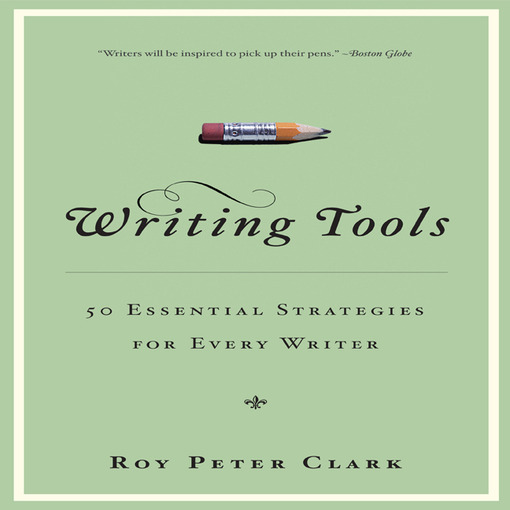"Writing is a craft you can learn," says Roy Peter Clark. "You need tools, not rules." In this essential guide, Clark distills decades of experience into fifty tools that writers of all kinds can use every day.You may be crafting a newspaper story or an admissions essay for college. You may be writing a technical report or drafting your first novel. You may be a student or a teacher, a poet or a critic, a columnist or a blogger. You may be preparing a PowerPoint presentation or penning a love letter. Whatever your task, you can become a more fluent and effective writer—a writer with a purpose, a plan, and a workbench full of tools. For example:
Tool 7: Fear not the long sentence. Take the reader on a journey of language and meaning.
Tool 28: Put odd and interesting things next to each other. Help the reader learn from contrast.
Tool 34: Write from different cinematic angles. Turn your notebook into a camera.
Tool 41: Turn procrastination into rehearsal. Plan and write it first in your head.
Clark works from the belief that every writer can grow—and should. Writing Tools shows the way.

